Indigenous voice to parliament: Re-dividing Australia along racial lines won’t improve the nation
The voice, which sits within the fever pitch of identity politics breaking out all over the West, is not the way to improve Indigenous lives.
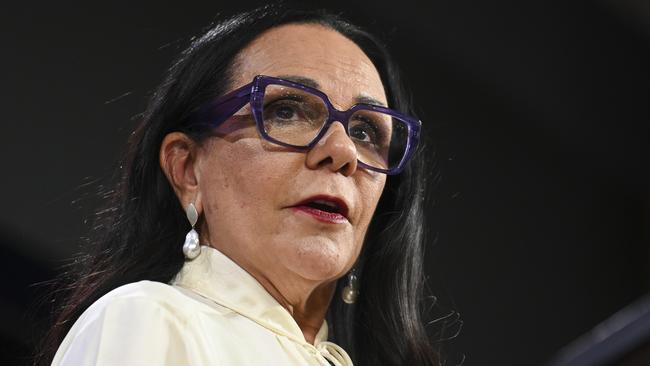
We think of the voice referendum in purely Australian terms, as a result of a long conversation about Indigenous issues. It’s partly that but, like most initiatives of the Australian left, it’s also a subset, an imitative adaptation, of major trends in Western politics.
As Burney’s speech made clear, the voice proposal sits exactly within the fever pitch of identity politics and the new centrality of race, which is breaking out all over the West but, fascinatingly, not in other cultures.
This marks a tragic regression in Western politics, a repudiation of the ideal of civic universalism that distinguishes Western civilisation at its best, though of course often enough honoured in the breach. As Peter Dutton argued on his seminal parliamentary speech, the voice would “re-racialise” Australian politics and society. That’s exactly what’s happening all over the Western world.
Several elements of Burney’s speech unwittingly make this clear. This is not a personal attack on Burney, who is plainly a well-motivated person seeking to improve the lives of Aboriginal Australians.
Nonetheless, two statements of hers were instructive. One was that “We in the Yes campaign will be positive and respectful”.
The second was that those involved in the No campaign were importing Trump-style politics into Australia, spreading falsehoods and lies, dividing Australians, and were part of a “post-truth” movement.
These sentences are so telling because they express two contentions at the heart of the debate: those who favour changing the Constitution to enshrine a racially exclusive voice to parliament and the executive are clothed in moral heroism. Those who oppose it are not just people we disagree with but conscious agents of evil, dishonesty and division.
One of the voice proponents present at the press club, interviewed straight after Burney’s address, said “Peter Dutton is a joke” and, further, that the Opposition Leader envisaged a future “full of hatred” whereas Australians wanted a future “full of hope”.
Burney cited as an example of Trump-style, post-truth falsehoods the proposition that the voice “contradicts the fundamental democratic principle of one vote, one value”.
But only last week Geoffrey Blainey, our most considered and eminent historian, wrote that the voice, if successful, “will also break the golden rule of democracy: one person, one vote”.
Malcolm Turnbull, in his prime ministerial memoirs, explained his in-principle opposition to the voice. He later changed his mind, perfectly reasonably, but his initial reasoning remains very powerful. He wrote: “Our democracy is built on the foundation of all Australian citizens having equal civic rights – all being able to stand for and serve in … our national parliament … A constitutionally enshrined additional representative assembly for which only Indigenous Australians could vote for or serve in is inconsistent with this fundamental principle.”
You couldn’t possibly imagine two Australians less accurately described as Trump-like, purveyors of falsehoods, sowing division or qualifying as “post-truth”. Yet in Burney’s formulation, Blainey and Turnbull’s arguments are not just wrong but wicked.
Consider this. The Institute of Public Affairs, a conservative think tank, produced a video with opposition Indigenous Australians spokeswoman Jacinta Nampijinpa Price and senator James McGrath, expressing their perfectly reasonable opposition to the voice. Facebook ruled the IPA could post the video but could not spend money promoting it. The IPA then produced a video about not being allowed to promote the first video, and Facebook ruled they couldn’t promote that either.
Contrast that with ABC reporter Dana Morse, who recently told the Insiders program that protesters opposing Australia Day on January 26 were protesting “the genocide of Aboriginal people that is ongoing today”. That’s untrue and ridiculous, but it’s not the view that’s censored.
The federal government plans new laws against disinformation and misinformation on social media, which can be censored, and for which people can be fined huge amounts of money, especially if it’s deemed to harm a minority. Combine that with Burney’s definition of even Blainey and Turnbull-style advocacy as Trumpism, post-truth and so on, and we can see the power of the state mobilised against dissent.
That’s the nature of contemporary identity politics. Opposition to it is regarded by the dominant elites in Western politics as equivalent to the old crime of ideological deviationism, which was once the chief charge ruling Communist Parties made against their dissidents. They also made this charge against Communist Party members who fell out of favour or failed to follow precisely the latest twist in forever-changing ideological orthodoxies.
This may seem a very culture-wars treatment of this issue. But the voice is an anti-democratic idea, based on the terrible proposition that universal suffrage and democratic politics cannot ever serve the interests of designated identity groups. The way it’s being imposed, the restrictions on discussion, the absurd imbalance in financial resources for the Yes and No cases, is itself undemocratic. The method and the substance are intimately linked. A No vote would, in fact, be a magnificent people’s revolt against institutional arrogance.
Consider some international examples.
Last week the US Supreme Court, one of few US national institutions not controlled by pro-identity politics orthodoxy, struck down the racial preferment used by Harvard and many other universities, under affirmative action, to select students. The universities previously applied a pro-African-American and pro-Hispanic bias.
The court’s decision outraged the Biden administration, with the Joe Biden declaring “this is not a normal court”, and left-liberal opinion, including the elite universities. In Australia almost no commentators noticed that the legal action in the court was not brought by white students or parents but by a group representing Asian students. Asian-Americans score better on colourblind tests than whites or any other minority. This isn’t because they enjoy any genetic superiority but because their cultures emphasise family stability, regular lifestyles and hard graft at school work and study. Like the Jews in the 1920s and ’30s, if selection were down to merit, they would be over-represented at Ivy League colleges.
Nor is the superior Asian-American performance a consequence of Asian culture being superior to Western culture. Until five minutes ago, Western culture itself emphasised the very values that make Asians so successful today. But the progressive disintegration of Western tradition has led to the enfeeblement of Western educational performance.
As others have observed, affirmative action in college admission doesn’t result in working-class black kids going to Ivy League schools. Instead, it chooses the sons of wealthy black immigrants and the middle-class children of middle-class bi-racial couples ahead of the daughters of Vietnamese greengrocers and Korean convenience store owners.
The court ruled that the plain meaning of the 14th amendment to the US constitution, which outlaws institutional racial preference, and indeed of the 1964 Civil Rights Act, which does the same thing, means that racial preferences under affirmative action are not allowed. Chief Justice John Roberts wrote that proponents of affirmative action “have concluded, wrongly, that the touchstone of an individual’s life is not challenges bested, skills built or lessons learned, but the colour of their skin. Our constitutional history does not tolerate that choice.”
The most tart comments came from Justice Clarence Thomas, himself black, in concurring. He said racism could not be cured by more racism. Not only that, he argued, as a simple practical matter, if you divided America into a series of races all competing with each other for scarce resources on a racial basis, this couldn’t lead to the racial harmony affirmative action claimed to be building. The court emphasised that universities were free to help disadvantaged applicants, but they couldn’t make race the basis for help. It’s also the case that Ivy League and other universities should abolish preferential access for the children of alumni and big financial donors.
The clarity of the Supreme Court’s ruling, which expresses classical Western liberalism, is shocking to contemporary Western sensibility because it’s now so rare. All left-liberal opinion in the US will now campaign to overturn or outflank the ruling, or to interfere with the court.
The bottom line is that making race the centre of civic life is regressive and destructive.
Consider the deadly riots in France. A policeman, in what seems a tragic and needless over-reaction, shot dead a 17-year-old boy of African origin in a traffic incident. No one condones that. The policeman is now on trial for involuntary homicide. But France has been rocked by destructive, wildly violent riots, including an attempt to murder a mayor and his family.
The French Intifada: The Long War Between France and Its Arabs, is just one of many books and studies to present evidence that a large slab of the North African and Middle East community living in France actually hates France, hates the idea of France.
Unemployment is at a record low, France enjoys a high living standard and a generous welfare state. Other French minorities – Vietnamese, Chinese and Indian among them – are successful. But a sizeable chunk of the African and Middle East population rejects the legitimacy of the French state.
This is partly because of the strong anti-Western strain in Middle East and North African Islamic political culture. But it’s also partly because French intellectual traditions have for many decades been ferociously self-loathing, anti-Western and anti-France. Some of the greatest communist mass murderers of the 20th century, such as Pol Pot and Ho Chi Minh, were formed intellectually by their time in France. From Jean-Paul Sartre through Michel Foucault up to today, French intellectuals have been telling the world that their society is inherently corrupt and fraudulent, that democracy is the biggest fraud of all, along with almost everything in the Western inheritance that has ever given meaning and purpose to life.
A version of this syndrome of self-loathing now infects every Western society, especially universities and schools. Britain recently declared the national pastime of cricket is infused with toxic and systemic racism. Of course, what else? The identity politics protesters have defaced statues of Winston Churchill, who is remembered in history chiefly for his heroic defiance of Nazism but who is condemned because he did and said some silly things, and doesn’t meet today’s standard of identity politics perfection.
There are a thousand such examples. Our attempt to insert race into the heart of our Constitution, to create a new race-based chapter of the Constitution, whereas the thrust of liberalism for 200 years has been to remove race from civic considerations, conforms perfectly to this international paradigm.
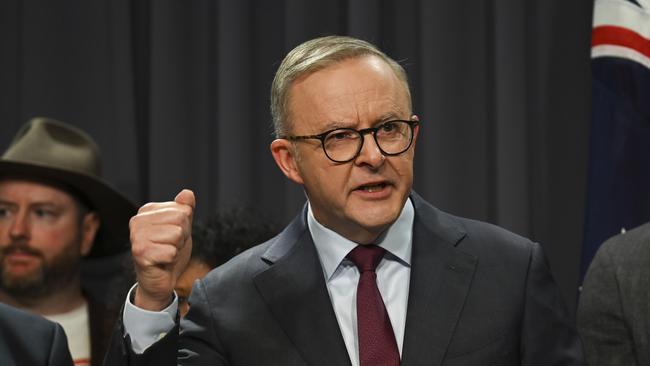
Anthony Albanese, the most sophisticated advocate of the voice, presents it as being part of a pro-Australian agenda. He says Australia is the greatest country in the world and the voice can make it even better. That is the most effective line of advocacy for the voice.
But in truth the identity politics dead end down which so much Aboriginal activism has recently and tragically made a wrong turn carries at its heart a long-term attempt to delegitimise modern Australia.
This was evident on Australia Day this year in Victoria. I hosted American visitors who were simply astonished that there were no street parades, no celebrations, no good cheer and goodwill in Melbourne for the national holiday. Dan Andrews’ government, the most ideological in Australia, had cancelled all that. As sure as night follows day, if the voice is successful the activist leadership of so many Aboriginal movements, many of them as distant in their way as anyone else from much on-the-ground Aboriginal reality, will turn back towards the delegitimising agenda. This is both for ideological reasons and as a way of seeking power.
The Uluru Statement from the Heart itself, which the government fully supports, envisages a treaty and truth-telling commissions. These processes will demand more reparations for past injustices, just as the perfectly insane idea of the US paying financial reparations to the descendants of slaves is mainstream Democratic orthodoxy today.
It’s impossible, and wrong in principle, to remedy an injustice to one person 200 years ago with financial payments to a different person today, and madness to try.
We’re already seeing Aboriginal policy run wildly beyond common sense. Under a proposed West Australian law anyone who owns a slightly larger than average suburban block of land and plans to build a swimming pool will need a certificate establishing they are not disturbing a culturally sensitive site.
This mad idea, if implemented, will produce rent seeking, a raft of unproductive bureaucrats, serious inefficiencies and costs, and massive resentment.
The federal government occasionally argues we will suffer huge reputational damage internationally if we vote No. This is as ridiculous as Paul Keating’s claim that Asia would not deal with us well if we didn’t become a republic.
Labor senator Pat Dodson says we will have no integrity in criticising Chinese human rights violations if we vote No. The chairman of Wesfarmers, Michael Chaney, argued that international investors might hold back investment because they would think we were fundamentally unfair.
These views, in my opinion, are ridiculous. The world will think us racist only if we proclaim ourselves to be racist. There is not a skerrick of evidence that Australia is particularly racist. We are surely one of the least racist nations in the world. Consider. Not a single Asian nation has anything remotely equivalent to our racially non-discriminatory mass immigration program. We have one of the highest proportions of immigrants, from every corner of the earth, of any nation in the world.
Racial discrimination is illegal in Australia. Already 55 per cent of the continent has been transferred to native title. This will likely rise to 70 per cent. There are 11 Indigenous MPs and senators in federal parliament. There are countless affirmative action programs for Aboriginal Australians. Each year tens of billions of dollars are spent on Aboriginal welfare and development programs. Land councils and traditional owners have effective veto over mining activities. There are countless Aboriginal consultative mechanisms and bodies, one of which sits in the national cabinet. Every official event begins with acknowledgment of Aboriginal elders.
None of this wipes out the shocking disadvantage and dysfunction that exist in many remote Aboriginal communities and in cities such as Alice Springs and Darwin. But it is simply a lie and a defamation to claim that contemporary Australia is more racist than any other nation on earth.
We have a successful society that certainly needs improvement. Re-dividing our society along racial lines, while we unconsciously implement our own version of the most destructive trends in Western identity politics and culture, and damn to secular hell anyone who dares disagree, is not the way to do it.


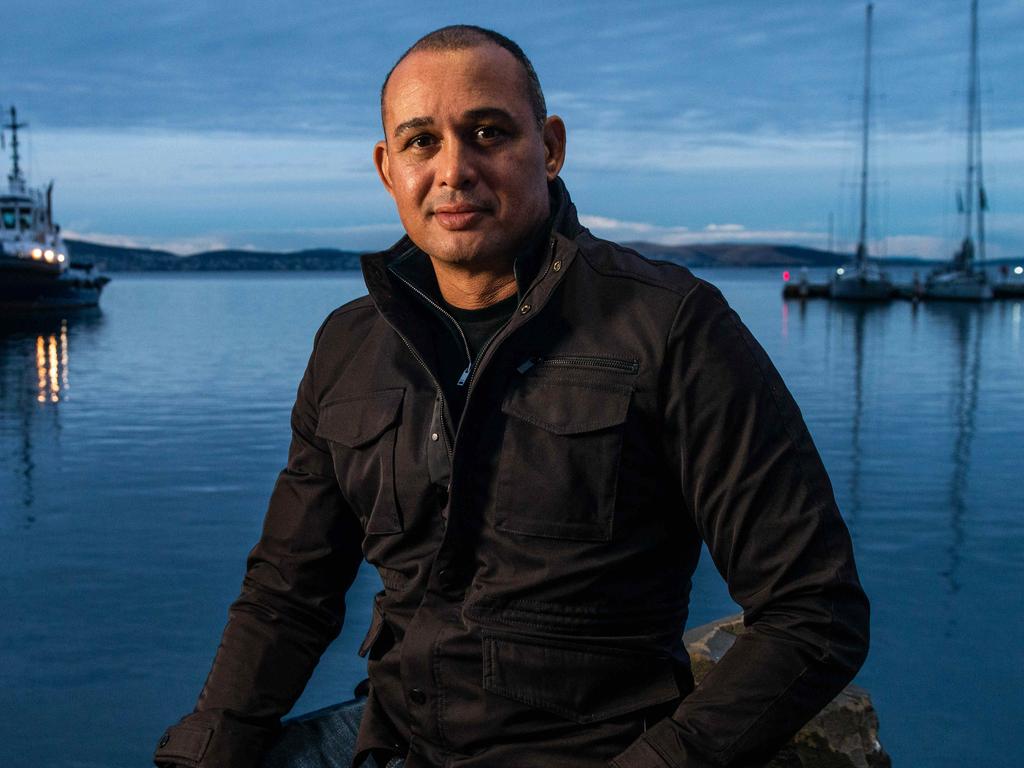
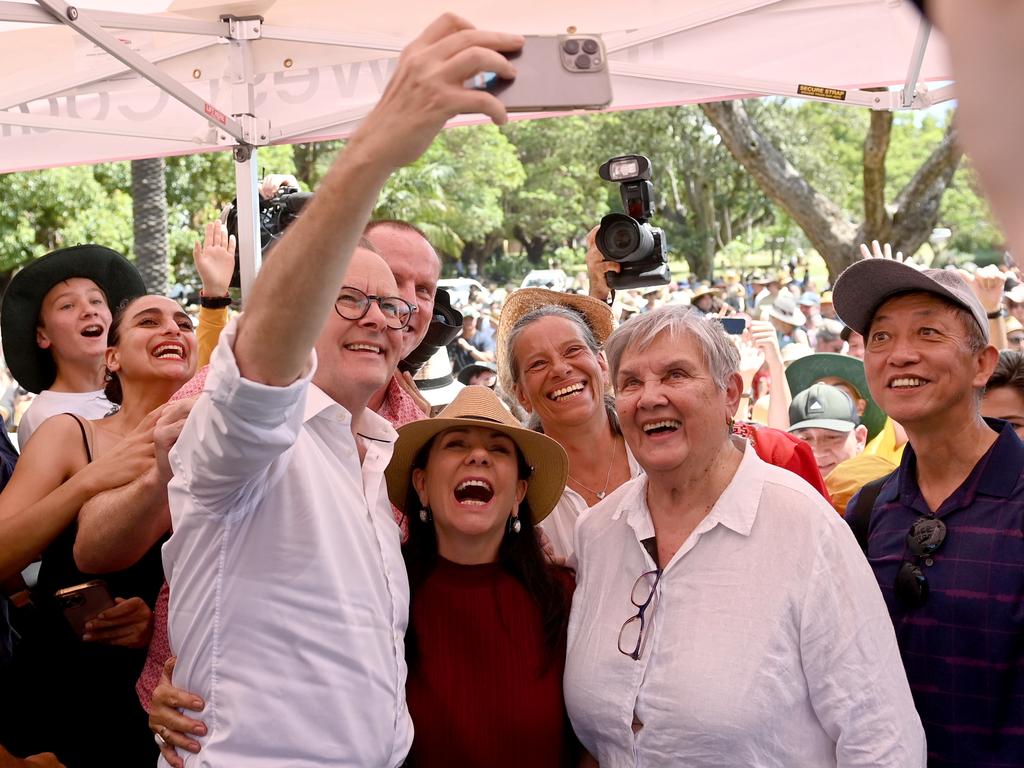
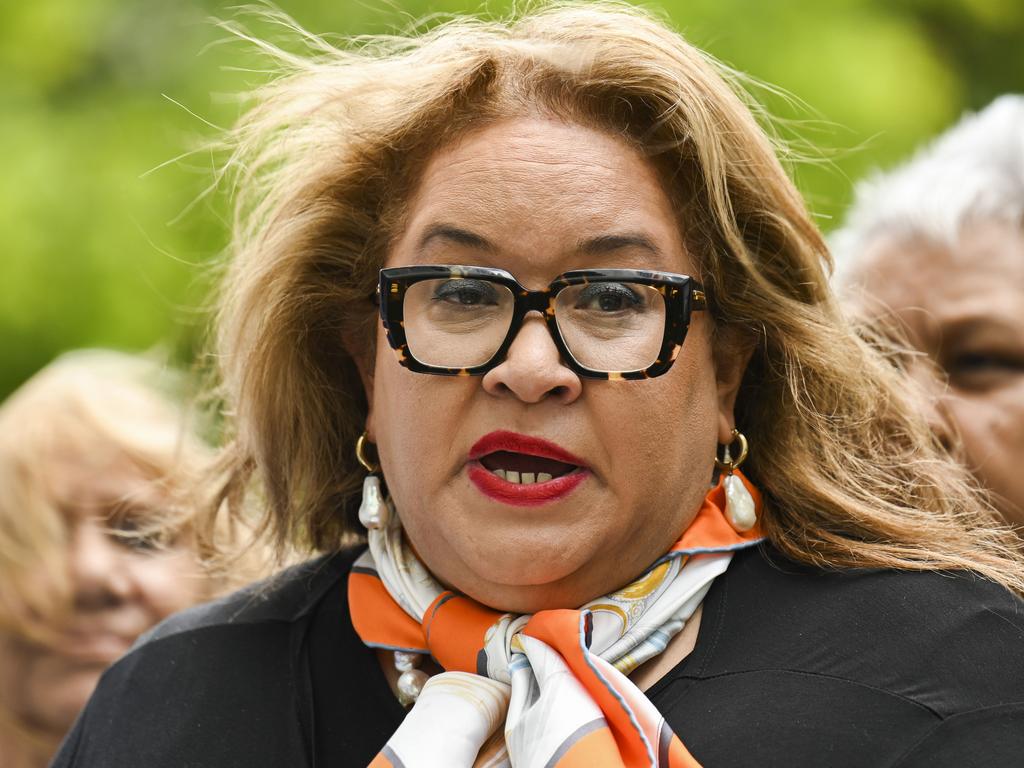
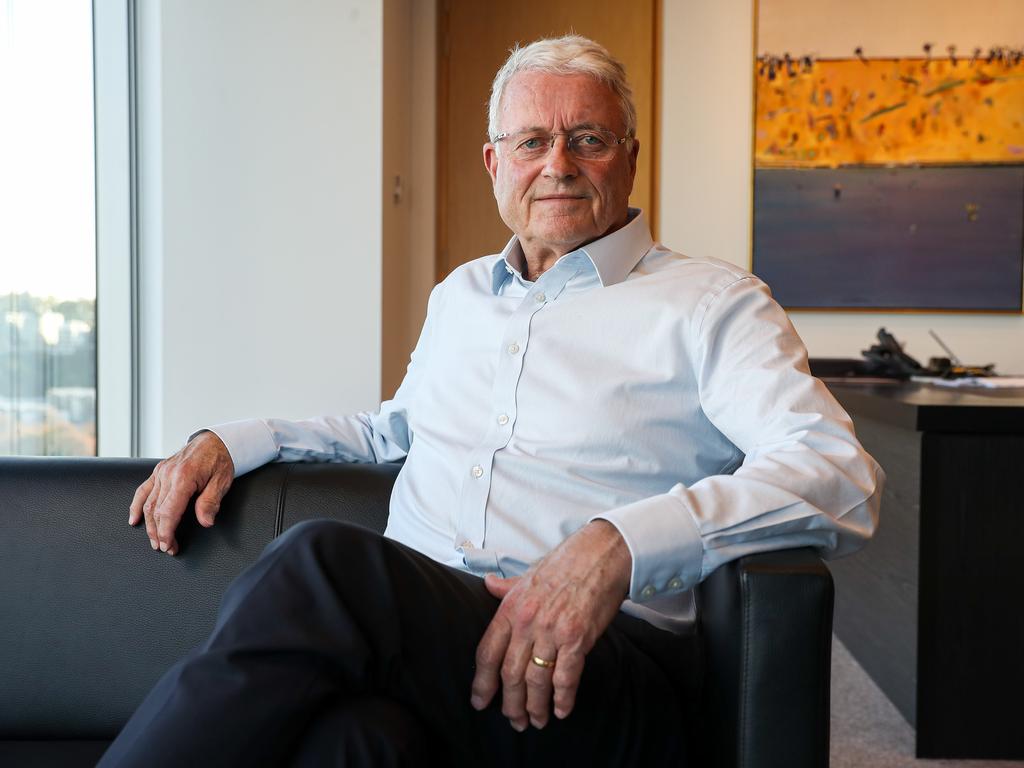
Indigenous Australians Minister Linda Burney delivered a crucially important address to the National Press Club this week. She unintentionally laid bare just where the voice referendum sits in the context of today’s Western politics.